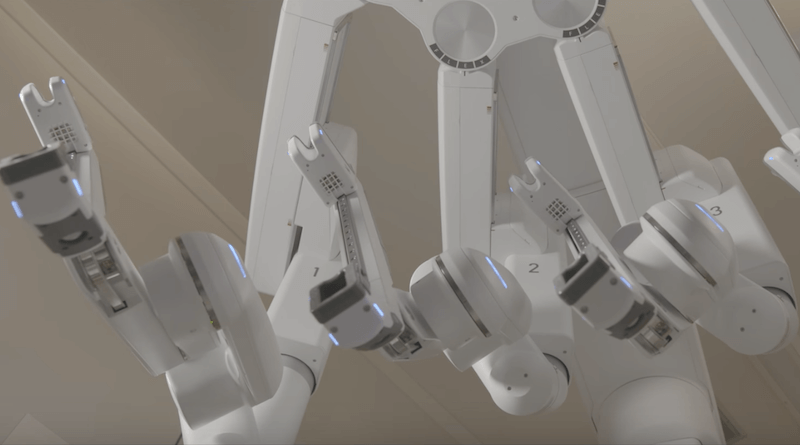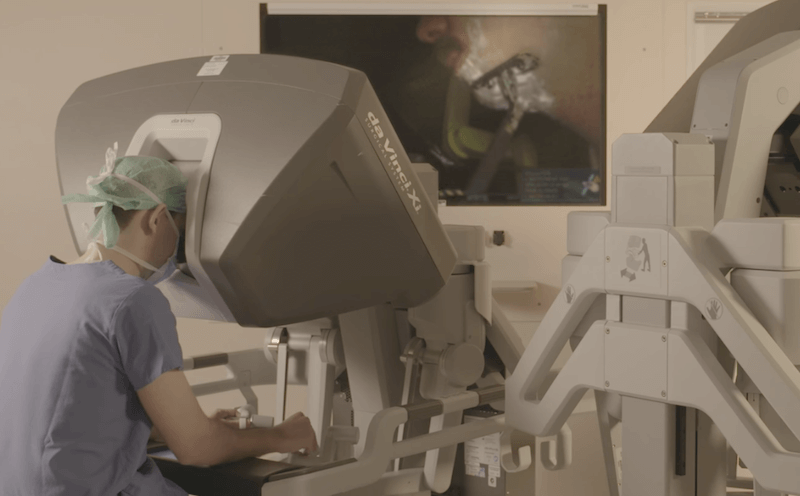This week, Geneva University Hospitals (HUG) announced it had carried out the largest number of robotic surgical procedures in Europe, passing the milestone of 2,500. The exact total is 2,514, which include visceral (1,185), urological (1,053) and gynaecological (276) operations. The team has observed numerous benefits from robotic surgery, such as smaller incisions and scars, less pain, less leakage from stitches, fewer blood transfusions and less time in hospital. In addition, costs are far lower. For example a robotic gastric bypass costs CHF 18,587, compared to the CHF 25,466 it typically costs for open surgery, a saving of 27%. Much of the saving relates to fewer postoperative complications, in particular postoperative leakage and shorter hospital stays. And these savings are after
Topics:
Investec considers the following as important: Business & Economy, Editor's Choice, Robot surgery Geneva, Robot surgery Switzerland, Science and technology
This could be interesting, too:
Investec writes The global brands artificially inflating their prices on Swiss versions of their websites
Investec writes Swiss car insurance premiums going up in 2025
Investec writes The Swiss houses that must be demolished
Investec writes Swiss rent cuts possible following fall in reference rate
This week, Geneva University Hospitals (HUG) announced it had carried out the largest number of robotic surgical procedures in Europe, passing the milestone of 2,500. The exact total is 2,514, which include visceral (1,185), urological (1,053) and gynaecological (276) operations.

The team has observed numerous benefits from robotic surgery, such as smaller incisions and scars, less pain, less leakage from stitches, fewer blood transfusions and less time in hospital.
In addition, costs are far lower. For example a robotic gastric bypass costs CHF 18,587, compared to the CHF 25,466 it typically costs for open surgery, a saving of 27%. Much of the saving relates to fewer postoperative complications, in particular postoperative leakage and shorter hospital stays. And these savings are after including the cost and maintenance of the robots, two state-of-the-art Da Vinci surgical robots purchased in 2015.

At HUG, robot and surgeon work together. The surgeon controls the robot, which reproduces their movements using micro-instruments, making smaller and more accurate movements inside the patient’s body. Each surgical movement is performed through the direct action of the surgeon. The video below shows someone being robotically shaved at HUG as part of the cancer fund raising event Movember.
Some robot makers think that eventually robots will operate without human involvement. Wired interviewed Christopher Prentice, CEO at Mazor, a company competing with the maker of Da Vinci robots, who thinks machines could do more without surgeons than they currently do. Mazor Robotics makes a system that identifies where surgeons should insert bone screws into the spine. Their machine could have done the drilling, but surgeons preferred to do it themselves. Prentice said “We had the technical ability to do it, but you have to go one bit at a time.”
A report by consulting firm McKinsey calculates that only about 5% of occupations could be fully automated away using current technology, but that 45% of the activities people do across all occupations could be. Rather than eliminating professions, technology is likely to do away with elements of them. Overall, 36% of what is done in healthcare could be automated, however most of this work is data and administration related.
Before machines do more in the operating room, surgeons will need to be convinced by the technology and not feel threatened by it. Along with advances in robots this will require people skills, the activity least affected by technology – the McKinsey study reckons tasks involving managing and developing people have only 9% automation potential.
In any case, it’s likely to be a long time before robot-barbers offer surgery on the side.
